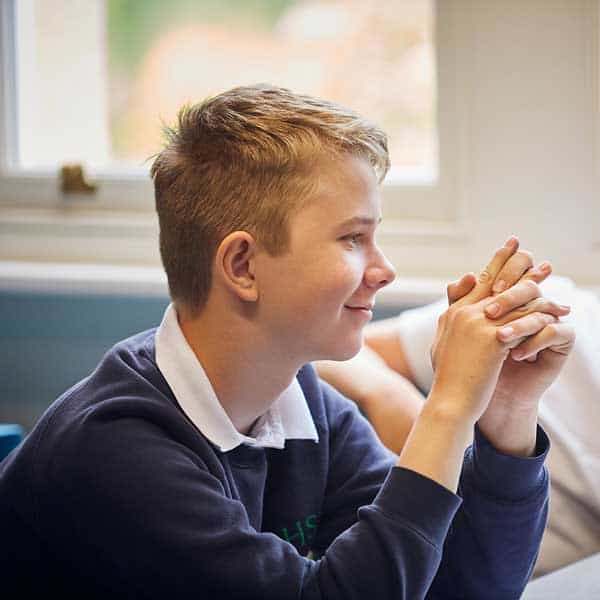Theology and Philosophy
Religious Studies at the Hall School Wimbledon has three principal aims. The first is to enable students to consider various faiths and beliefs. They discuss and contemplate these alongside developing their own beliefs. We have two criteria for our students in RS classes. They learn from religion and learn about religion. A student may not wish to fully engage with a particular faith but often finds ideas or moral principles that they are drawn to.
The second aim fits with our attainment target of learning about religion. It is our task within Religious Studies to educate students on the beliefs and values of as many faiths as possible. This enables them to participate fully in the global village of the 21st century as well as contributing to local communities.
Thirdly, Religious Studies engages with both Philosophy and Ethics. This is an excellent opportunity for students to engage with these disciplines which are, paradoxically, age old but ever new. Humankind has always engaged with a search for a meaning in life and discovery of a moral code. This is our student’s opportunity to embrace these themes.
Across Years 7 and 8 our pupils explore core ideas about Jesus, Christianity and a contemporary role, learning how to justify a developed argument. We review prior knowledge from a range of world religions before building upon this learning withJudaism and Islam. We refer to sacred scripts and case studies of the influence of faith on people. We include consideration of Merton’s important Ahmadiyya Muslim community.
In Year 9 we investigate Philosophical and Ethical issues, balanced with a deeper examination of Hinduism, Buddhism and Sikhism world views. We add an emphasis on more complex reasoning and building sustained arguments. This adds increasing nuance in students’ understanding of key religious thinkers and texts.
At G.C.S.E. we extend our study into beliefs and practices of Christianity and Islam in depth. We explore contemporary global influence and great debates. Students’ critical evaluation of evidence and argument is nurtured, supported by study skills to organise key points and religious terminology. The second part of course is exploring hotly contested current ethical and philosophical issues such as human relationships, the sanctity of life, claims to the existence of the divine, and crime and punishment.
As key resources we utilise the ISEB’s Common Entrance theology course, blended (at Key Stage 3) with Collins’s Knowing Religion series. We combine both rigour and contemporary research in the HSW RS curriculum. At G.C.S.E. level (Key Stage 4), the school enjoys continued success with AQA’s RS. We offer a (non-textual) qualification with Oxford’s board-approved textbooks, supplemented through a range of material and religious site visits, understanding of our place in the community and the wider world.


